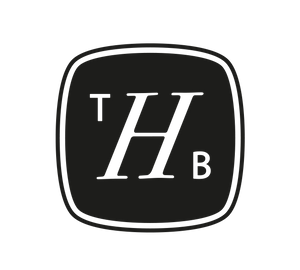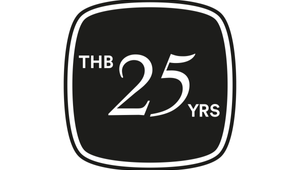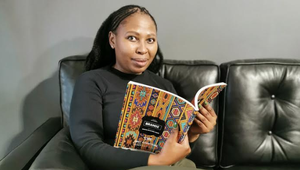
Behind the Work: South Africa Hears Its Domestic Abuse Survivors

The annual global UN campaign, 16 Days of Activism, aiming to end violence towards women and girls, has sparked millions of conversations worldwide, as well as timely responses by the creative sphere. Unilever’s Joko Tea didn’t miss the opportunity to educate and get the ball rolling in South Africa, calling for more action and information around domestic violence – teaming up with The Hardy Boys, Wunderman Thompson’s South African partner agency – they launched the #DonateYourVoice campaign, which ran from 25th November to 10th December.
The campaign’s ultimate goal was to end the silence around domestic abuse in South Africa and utilise the voices of celebrities, influencers and presenters, who would read out stories from survivors of gender-based violence. #DonateYourVoice comes as a response to the grim picture painted by statistics and lack of coverage around domestic abuse, not only in South Africa but all over the world. The purpose-driven tea brand Joko has been dedicated to its efforts to End Domestic Silence, continuously encouraging the nation to break its silence about GBV and focus on the appalling state of domestic abuse in the country.
As a result, tens of celebrity-voice stories aired across TV, radio stations, social media and digital – news presenters, DJs and poets read out survivor’s stories to make the public face the uncomfortable reality many women are silently living in. Developed in partnership with the South African NGO POWA (People Opposing Woman Abuse), the campaign was based on the insight that too often, real-life human stories of abuse are overshadowed by empty statistics. For the brand, as well as its collaborators, this effort meant that finally, stories were not only heard but listened to, especially during the Covid-19 pandemic, which has overshadowed women’s issues all over the world.
Geoff Paton, chief creative officer at The Hardy Boys, spoke to LBB’s Zoe Antonov to tell her more about the difficulties behind developing #DonateYourVoice, sharing the experiences of real life survivors and more.
LBB> How did the idea for this campaign come about and what were the conversations around it?
Geoff> The campaign was the result of a collaboration between The Hardy Boys and Wunderman Thompson Global in response to a brief for the 16 Days of Activism for Joko Tea (a Unilever brand) and their purpose partner POWA (People Against Women Abuse). The issue of domestic violence is such an important one, that we decided to use the Lightning Bolt Brief – a creative brief open to all offices – as a mechanism to find and present the best ideas that fitted the Joko brand’s purpose and point of view on ending domestic silence. The result was a collaboration between The Hardy Boys and Wunderman Thompson London, based on the insight that we often hear the horrific statistics around domestic violence, but rarely the stories of survivors who’ve had the strength to tell them. We believed that if we could help amplify these stories (with the help of public figures who would be willing to donate their voices) that these stories would be then heard by a larger audience and could help bring greater public awareness to the issue in a very human way, while also helping victims of violence themselves.
LBB> Was it difficult to work with real life survivors of domestic abuse? How did you go about doing that?
Geoff> The issue of domestic violence is such a sensitive and nuanced one, but working with Joko’s purpose partner, POWA, enabled us to have access to stories written by survivors as part of a writing project. Many of the writers gave us permission to share their stories and some were even willing to tell theirs on camera alongside the public figures who had donated their voices. We were humbled by the strength and grace of these women and the power of their stories.
LBB> What were the biggest hurdles you had to overcome in the production of the campaign?
Geoff> All the elements of this campaign were of a sensitive nature, and finding the right stories, editing and collating them, as well as collaborating with survivors, POWA and Joko required some serious teamwork and conversation. Working within the 16-day campaign duration and with the schedules of public figures in our films, on radio and on other broadcast media, was also a challenge on a tight timeline.
LBB> How have audiences taken the campaign, what have the reactions been like?
Geoff> The response has been overwhelmingly positive, with people asking to participate on digital and social channels, almost 70 million media impressions so far, and earned coverage in our most influential daily newspapers: interviews on eNCA news, SABC News, Newzroom Africa and on leading radio stations. And POWA also secured more earned media and PR coverage as a result of the campaign.
LBB> Why do you think it is important for creative media to shed light on this issue in South Africa?
Geoff> Domestic violence is so endemic in South Africa, the statistics are almost impossible to comprehend. The awareness created through the media leads to conversations, and we need more ongoing conversations that lead to action - like improved legislation, policing and initiatives that drive behavioural change. We also need the broader public to participate more actively in the conversation.
LBB> Tell us more about the state of women's protection in South Africa right now.
Geoff> The current domestic violence statistics in South Africa are amongst the worst in the world, and there are many groups lobbying for more protection rights for women and children in South Africa. There is still a long way to go, but there have been a few encouraging signs of progress. Last year, three important pieces of legislation were passed into law that caused a significant step forward. Our previous 16 Days Of Activism campaign for Joko played an important role in getting the Criminal and Related Matters Amendment Bill, Domestic Violence Amendment Bill and the Criminal Law (Sexual Offences and Related Matters) Amendment Act over the line faster. But there is still much more to do to ensure the necessary protections are put in place and enforced.
LBB> What were the main messages you aimed to convey through the campaign?
Geoff> Donate Your Voice to #EndDomesticSilence was about creating more ongoing conversations about domestic violence and telling the human stories behind the statistics as a way to connect people more emotionally to the topic.
LBB> What was the writing process like, when it comes to the scripts based on real-life stories of domestic abuse survivors?
Geoff> We used the stories of the POWA Writing Project and saw ourselves more as editors, trying to remain true to the writers’ intentions, while creating media-friendly formats that aided storytelling. We collated the stories, engaged with the writers through POWA, communicated the message and campaign intention, and then sought permission and approval on the final edits. The process itself really drove home the lasting impact of domestic violence on real people who had found a way to begin putting their lives back together and had the courage to share their experiences.
LBB> What are your plans for the ending of this campaign?
Geoff> We’ll be thanking the South Africans who have donated their voices and will compile a story composed of multiple voices to share on the brand platforms and in the media. We’re also hoping to create a travelling audio installation early in the new year to further share the stories.
LBB> Any final thoughts?
Geoff> It’s been a profound experience and a privilege working alongside survivors and sharing their stories. We hope to make a difference, not only by bringing more awareness to the issue of domestic violence, but also by showing victims that there is hope and help at hand.










